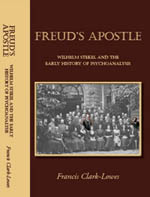Six weeks after walking across the Bosporus Bridge I was in Jerusalem, a route march of 1202 miles, averaging 29 miles per walking day. This unnatural haste was motivated by a number of factors: I had not been able to transfer money to Istanbul and so left there with only $50 in travellers cheques; I was afraid of wintery weather in the Taurus Mountains; I liked the idea of being in Jerusalem for Christmas; I felt that the longer I took, the less likely my reunion with Angie would become; and, last but not least, I was afraid of failing to complete the walk.
Before looking back at my notes, I would have told you that I had a wonderful time in Anatolia and the Arab Levant, with only a couple of uncomfortable incidents, far outweighed by the extraordinary generosity of the people. Indeed I was very hospitably received, being regularly invited into people’s homes to stay the night, or having hotel bills paid. But the notes also indicate frustration, exhaustion, near injury, attacks by rabid-looking dogs, unsavoury room-mates in hotels, and footwear problems. Even the generosity of the people was at times oppressive, because they wouldn’t take ‘no’ for an answer to offers of transport and, when I didn’t need it, of accommodation and food. In Turkey my hosts would feel it their right to rummage through the contents of my rucksack, and I got very fed up with being thought to be ‘Alman’ (German).
Nevertheless, those six weeks were an amazing experience; the countryside was often spectacular (particularly the extinct volcanic craters east of Konya and the Taurus Mountains), and I met a wonderfully colourful collection of people along the way (such as an Argentinian mayor in a remote Syrian village). My courage was maintained by letters and financial contributions (in 1000 Austrian shillings and £10 and £5 notes) from Angie and my parents, picked up at agreed occasional poste restante addresses. One night I thought it was all over when my knee seized up, but miraculously it had recovered by the morning. Attacks by wild dogs were dealt with by the rather brutal tactic of picking up a handful of stones and, at night, throwing them in the general direction of the barking. During the day it was sufficient to raise your hand.
Much of the route was through arid land or even desert and the weather was often terrible. At one point in my notes the word ‘mud’ figures prominently! I encountered a thunderstorm in the Taurus Mountains, followed by snow which was a foot deep by the morning. I spent that night at the summit of the pass in a shish-kebab shop, where I kept myself from freezing to death by regularly re-stoking the fire. The next day I came down to the warm, but flooded Mediterranean coast. In Antioch, where I started to use my Arabic, the hotel room was flooded. After fighting my way through a cloudburst in Syria, I arrived in Homs to find the city under a foot of water.
As I walked south from Damascus I was quite near the occupied Golan Heights, and military checkpoints became a regular feature. Often soldiers would invite me for a cup of tea, and I learnt not to refuse, since this was a polite way for them to satisfy themselves I wasn’t an Israeli spy. I even spent one night in a tent at a checkpoint, and was handed a gun with the suggestion that we should together liberate Israeli occupied Syrian territory!
After a night in the eerie below-sea-level village of Shunat Nimrin in the Jordan valley, with its popping well-pumps and shady drug-dealers, I was obliged, much to my annoyance, to take a bus from the Jordanian customs post to the other side of the Allenby Bridge. I walked on through the occupied West Bank from Jericho up to Jerusalem where, after finding myself a hotel in the Old City, I completed the short distance along the Via Dolorosa to the Church of the Holy Sepulchre. I arrived there at 10 p.m. on Monday 20th December 1976. But it was only the next day, when I phoned Angie and my parents that I fully realised what I had achieved.

